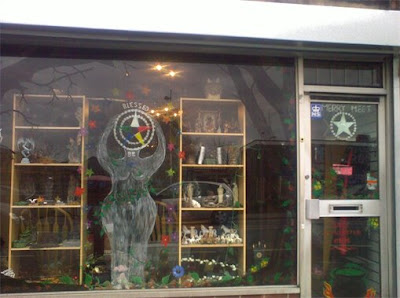Catholic Church discriminates against witches

A story doing he rounds over the last day or so is the complaint by a coven of witches against the Church for persecuting them by not allowing them to use a Catholic Church Hall for their annual "Witches Ball". (See: Witches' coven claims religious persecution after church hall ban)
Sandra Davis, the "high priestess" of Crystal Cauldron group in Stockport, said:
"I thought we had made progress, that we could accept other people's religious paths."Well I suppose this brings up a thorny question about the whole religious dialogue business. If you look up the website of The Crystal Cauldron, much of what they say is pretty tame - they are fairly liberal witches in a way. They want to harm nobody, refrain from speaking ill of others, release the inner energy, be kind to all creatures and live in harmony with nature. (They even have a children's group called "Little Crystals".) They do believe in the "polarity of the deity", in reincarnation, and in the rhythm of life forces; but then so do many buddhists and hindus.
Nevertheless, there is an instinctive and quite proper reaction among Christians against any form of witchcraft. Although many covens deny any relationship with satanism, the use of magic, spells or any other spiritual forces invites the activity of Satan since the supposed "life forces" used in witchcraft do not exist.
The Diocese of Shrewsbury sensibly stepped in to deny the use of the Church Hall to the Crystal Cauldron but this may be just a first, rather extreme, "test case". the Equality laws make it difficult for Churches who let their halls out to the public to specify that groups hiring must be "compatible with the ethos and teachings of the Catholic Church," as Fr Joyce insisted. It is possible (at the moment) to restrict lettings only to Church or related groups rather than making a Church hall available for let to the general public. That constraint in itself shows how equality laws restricting the Church's activity by interdicting a perfectly reasonable source of income that would normally contribute to the common good for ordinary local groups.